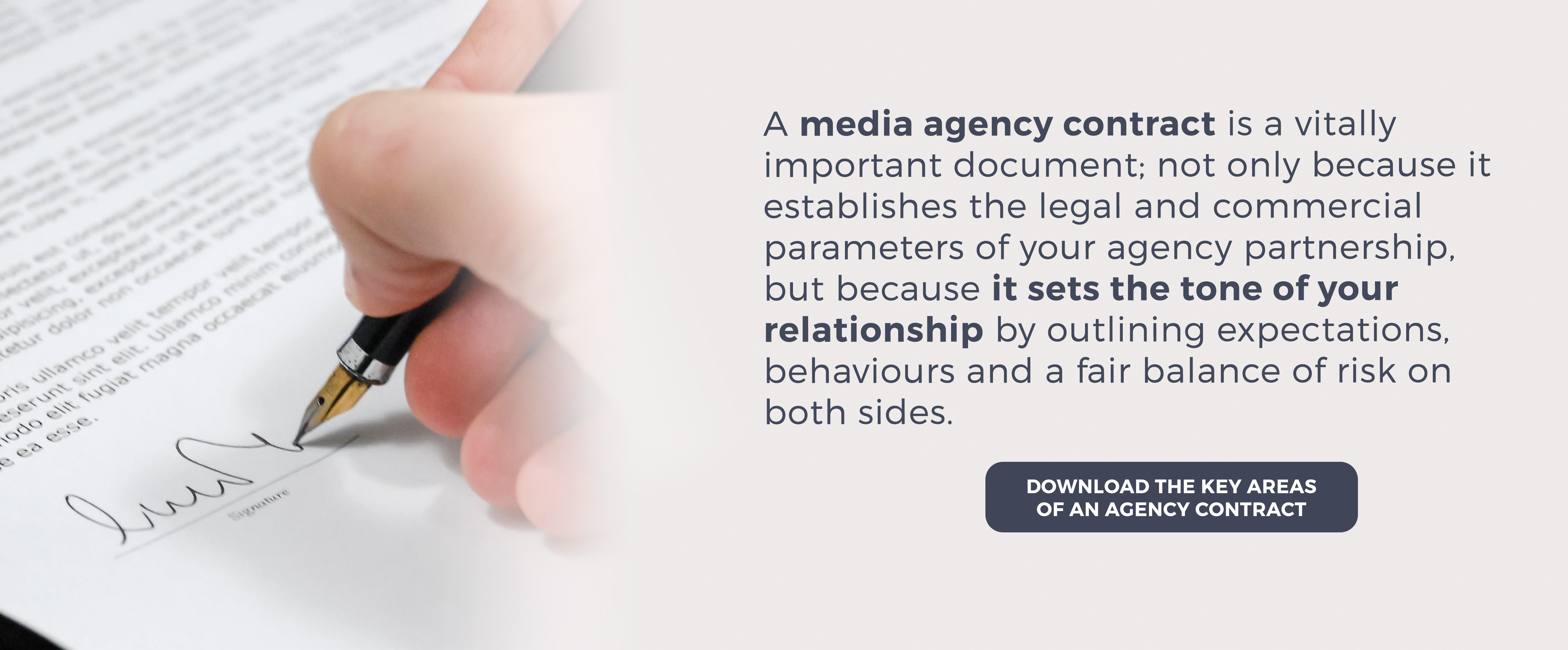Transparent and fair terms will build the trust required to establish a long-term relationship.
The contract that you sign with your media agency matters. It’s a vital roadmap for the relationship you want to build. It’s not something you can afford to sign and slip into a filing cabinet for three years.
That’s because, aside from establishing the legal and commercial parameters of the partnership, it sets the tone for the relationship. It outlines what’s expected from each party, what behaviours are acceptable and establishes the risk for both sides to the agreement.
Some elements will be simple or at least straightforward but others can be more complex, defining scopes of work, remuneration and performance, for example. Getting these right will often involve advertisers taking time to think about the principles, values and behaviours they would like to see in order to build long-term success.
These could include a commitment from the agency to ‘media neutral’ planning; guarantees around talent; or a commitment to transparency and fairness in all business dealings, for example.
To get this right, advertisers need to build time in the pitch schedule for contract negotiations to ensure that both advertiser and agency are aligned. To do that they will have to expand the parties typically involved in contracts beyond legal and compliance to include the marketing and agency service teams that will ultimately have to make the contract work.
Our research and conversations with ISBA members reveal that they are most confident on clauses around rebates and unbilled media, as well as remuneration models and KPIs. Typical weaknesses include their ability to secure appropriate visibility over agency overheads and margins, and having robust clauses covering data ownership and access.
Support in these areas is available in the form of the ISBA Media services framework template, which can be customised to specific requirements, or by inviting an independent third party auditor to provide guidance and support the implementation of a new agency contract.
Once all parties are aligned and an agreement has been signed, the agency contract must be subject to continual governance and periodic review. Good contract governance matters because:
- Terms of business can change as a result of shifting priorities or changes in the wider marketplace
- Discrepancies or errors in original contracts that may have been approved need to be amended and re-reviewed
- Strong partnerships are founded on continuous evaluation and improvement
Periodic contract reviews give both the advertiser and agency an opportunity to recalibrate their relationship while maintaining focus on desired goals, outcomes and behaviours. This is particularly critical in the current media environment, which is both complex and subject to constant change.
Media agency contracts are a vital guide both to the current state of the relationship but also to the future you want to have with your current agency partner. Giving them the attention they deserve makes it more likely that you will have that future together.
ID Comms recently worked with ISBA to assist members develop long term and productive relationships with their agency partners. Best Practice guide on Media Agency Management is designed to help develop the behaviours that deliver long-term media value and business growth for both advertisers and agencies.







COMMENTS